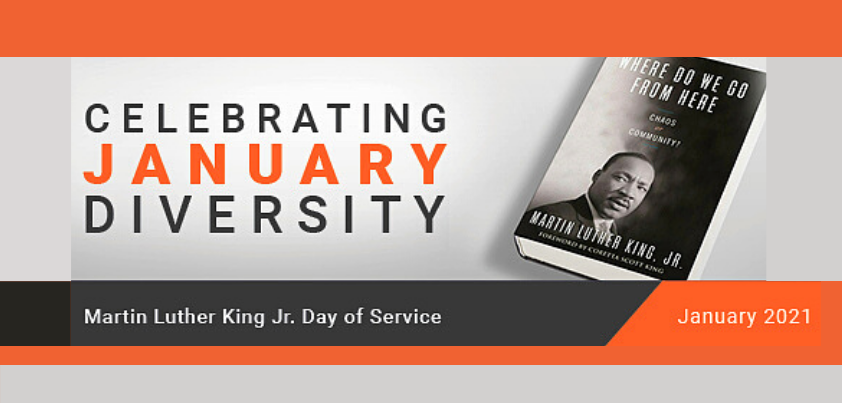MLK Scholar Inspires Next Generation of Civil Rights and Social Justice Activists

The Black Lives Matter Movement is allowing a new generation to define the struggle for equality and to learn who their allies are, Dr. Clayborne Carson told a University of Maryland Global Campus audience gathered virtually on Jan. 21 to honor the legacy of Dr. Martin Luther King, Jr. Every generation must determine who we are—and answer the question, “Where are we heading?” he said.
Carson, who was selected in 1985 by Coretta Scott King to edit and publish her late husband’s papers, is the founder of the Martin Luther King, Jr., Research and Education Institute at Stanford University, where he is also the Martin Luther King Jr. Centennial Professor Emeritus of History. He has devoted most of his professional life to the study of Martin Luther King Jr. and the movements he inspired.
“When you are marching for Black Lives Matter, you see who was at your side and who comes on board,” Carson said. “You get to know those people, and that’s what every movement is—a community of people getting to know each other, getting to have a sense that yes, I can rely on that person because I have been through struggles with them.”
The advantage of the Black Lives Matter movement today that the Civil Rights movement of the 1960s lacked, he said, is the digital communication that instantly connects people.
“In 1963, when I took part in the March on Washington, it took the best organizers in the world months to bring together that march of 200,000 people,” said Carson, noting that just after George Floyd’s murder last spring, it took only days to bring together 10 times that many people. “The capabilities that young persons have today are enormous.”
He said another difference between then and now is that women are leaders in the campaign for justice. In the 1960s, women were not allowed to be leaders. Coretta Scott King was not allowed to be seen in the front line of marchers, even though her activism predated her husband’s. Now, among other leaders, there is a Black vice president of the United States.
Carson was speaking with Dr. Natasha Rodriguez, UMGC’s assistant director for multicultural training and programming, about the question Dr. King posed in the title of his last book, “Where Do We Go from Here?”
People need to recognize that Dr. King was much more than just a civil rights leader, Carson said. When he was a young divinity student, Dr. King said his mission was to “deal with unemployment, slums and economic insecurity,” all the issues that faced his congregation.
If he were just a civil rights leader, “he could have retired after the Voting Rights Act passed and led a much happier life,” Carson said. But at the time of his assassination in Memphis, Dr. King was leading a poor people’s campaign and protesting the Vietnam War.
“That broad mission should be our mission,” Carson said. “That’s the unfinished business he left for us.”
Young people are taking up the Black Lives Matter cause after the death of George Floyd because they are not as jaded as their elders are by what happened, according to Carson.
“I think most of us over 30 would have said, ‘that’s terrible what happened to that guy. But I’ve seen it before,’” he said. “But it took someone in their teens or 20s to look at that and say, ‘I haven’t seen that before, and I don’t want to see it again. That really upset me and I’m going out to protest against it.’”
People need to recognize that police violence against Black people goes back to the beginning of American history, Carson said.
“It’s up to your generation and the students of today to say, ‘Yeah, but this stops now,’” he said. “When we had the March on Washington, we didn’t say ‘Freedom Some Day.’ It was Freedom Now.”
Share This